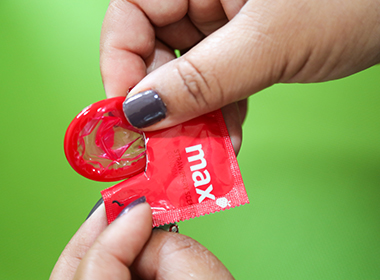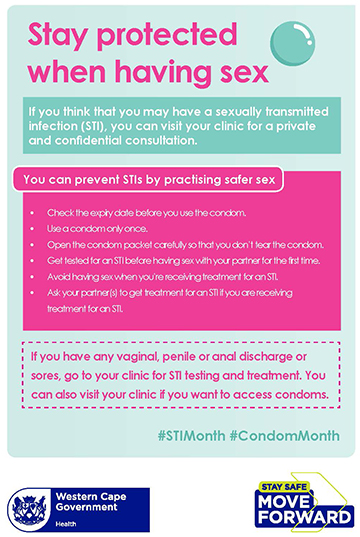Sexually Transmitted Infections
| Description: |
Sexually Transmitted Infections (STIs) are spread from one person to another in the following ways:
STIs are transmissible and carry health risks if left untreated. Remember: Don't neglect your sexual health. Contraceptives (oral and injectables) do not protect you from STIs. Common STIs include:
People living with HIV have a higher risk of contracting an STI as the virus attacks cells in the immune system, which is our body’s natural defence against illness. Signs and symptoms of an infection
How can you protect yourself? Using a condom properly can reduce the risk of getting infected. Condoms are free at all health facilities. Do the following to protect yourself:
Getting treatment Never leave an STI untreated it won’t go away on its own. If you think you may have an STI, you can visit a clinic that provides reproductive and healthcare services. Healthcare services for STIs are free at a public health facility. If you suspect you have an STI, your healthcare worker will do the following where appropriate: During your consultation:
|
| Instructions: |
All primary health care clinics or centres can test and treat STIs. Testing and treating STIs are free services at public health facilities. If necessary, the health facility may need to refer a person to a secondary or tertiary level hospitals for further testing and treatment. If you are a first-time visitors to the clinic, a secondary, or a tertiary hospital, they will ask you to fill out a form to open a folder for you. Bring your ID book or ID card. A referral letter from the clinic will be required when visiting a hospital. Hospitals will ask for your most recent payslip if employed. Bring your hospital card if you've previously registered at the hospital. |
| Provided At: |
These facility categories: |
| Government Body: | (Western Cape Government) |




